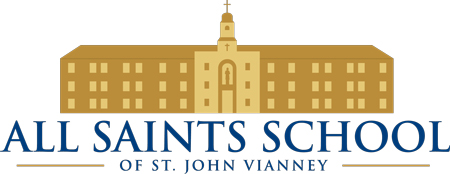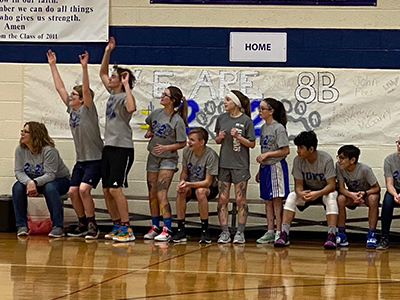Middle School
Our Middle School curriculum focuses heavily on preparing our students for the rigors of high school. Using a combination of technology and traditional learning, our students are fully prepared to enter high school and thrive.
They continue to attend specials like Art, Music, Physical Education, Library and Computer/Technology. Religion classes continue to be taught by supporting parish priests, reinforcing the values of their faith and building on their knowledge from the lower grades.
We will begin to understand how variables are used in equations. They will write expressions and equations to be used in specific situations. Reading more challenging text types such as Scripture, books, and articles will be the focus. We’ll also use technology to produce and publish longer (about three pages) pieces of writing.
The students will continue to work with ratios and proportions in single and multi-step problems. They will work with scale drawings and slope (steepness) of a line. Children will continue to use several resources to conduct short research pieces designed to answer specific questions. They will also analyze how a drama’s or poem’s structure (e.g. soliloquy, sonnet, psalm) contributes to its meaning.
Grade 8
Students will take what they have learned about slope in the seventh grade and use linear equations to analyze and solve a variety of problems. They will work with the Pythagorean Theorem (and its converse) and transversal cuts. We will be reading informational writing across all subject areas and incorporating what they’ve learned in Language Arts. The students will be challenged to write more argumentative and explanatory pieces rather than narrative.



